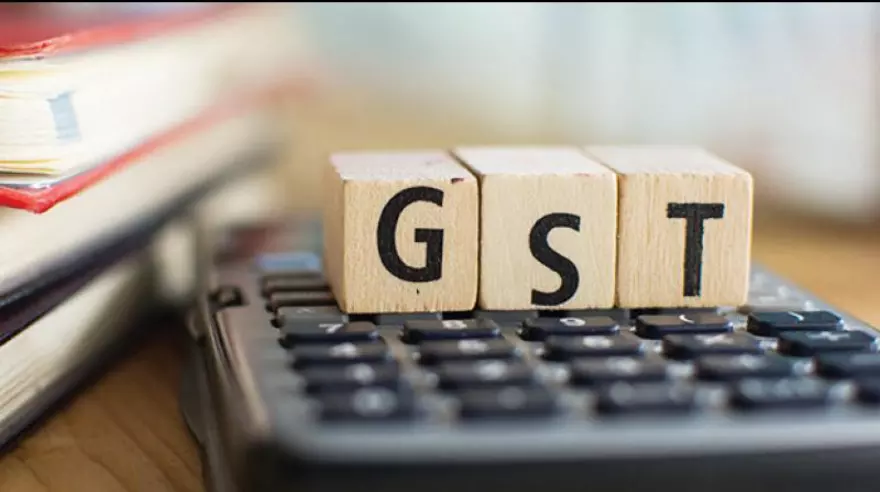From shampoos to biscuits, 375 items get cheaper under GST 2.0

New Delhi: The long-awaited overhaul of the goods and services tax (GST) structure will take effect on Monday, September 22, 2025, bringing relief on a wide range of daily-use items while raising levies on luxury products and so-called “sin goods”.
The GST Council had earlier approved the rationalisation plan, which reduces the number of tax slabs and lowers rates on 375 items, spanning food, personal care, household goods, electronics, medicines, and automobiles. At the same time, higher rates will apply to aerated drinks, premium vehicles, tobacco, and related products.
Households will notice price reductions on a broad basket of staples. The list includes beverages containing milk, biscuits, butter, cereals, corn flakes, fruit pulp, ghee, jam, ketchup, paneer, pastries, sausages, and tender coconut water. Ice creams, dry fruits, fruit jellies, and namkeen are also part of the revised lower slab.
Personal care items will also become cheaper. Toothpaste, shampoos, shaving creams, soaps, hair oils, face creams, and talcum powders have all been moved into the reduced GST category.
Drinking water packed in 20-litre bottles, a common household purchase, is also among the items benefiting from the revised rate.
For consumers purchasing big-ticket household electronics, the revised GST will ease prices of televisions, washing machines, dishwashers, and air conditioners. Industry analysts expect strong demand ahead of the festive season, with several companies already communicating discounts.
Medical costs are also expected to come down. GST on diagnostic kits and glucometers has been lowered to 5 per cent, leading to revised maximum retail prices across pharmacies. According to a PTI report, the government has directed chemists to pass on the benefit by updating labels or offering medicines at reduced rates.
Services such as salons, gyms, health clubs, barbers, and yoga centres will charge less following a GST cut in the wellness sector.
The construction sector is likely to gain from a lower GST on cement, which has been cut from 28 per cent to 18 per cent. Developers say this could translate into reduced home prices, particularly in urban centres where cement constitutes a significant input cost.
In the automobile space, a flat 40 per cent GST — including cess — will now apply, compared with the earlier band of 35 to 50 per cent. Industry bodies expect the move to make cars more affordable in several segments. Auto majors have already announced festive-season discounts beginning September 22.
However, not all categories are seeing relief. The Council has approved a steep rise in GST for aerated drinks, including Coca-Cola and Pepsi, with rates up from 28 per cent to 40 per cent. Other non-alcoholic beverages, such as flavoured or sweetened drinks, have also moved into the 40 per cent slab.
A higher rate of 40 per cent will also apply to larger petrol and diesel vehicles, motorcycles above 350 cc, yachts, personal-use aircraft, racing cars, and smoking pipes. Cigarettes, bidis, pan masala, and other tobacco products are placed under the same rate bracket.
Major fast-moving consumer goods (FMCG) firms have already rolled out revised price lists to distributors and retailers. Amul, Hindustan Unilever (HUL), Dabur, ITC, Procter & Gamble, Nestle, Emami, RCPL, and PepsiCo are among those passing on GST benefits to consumers.
Dabur has reduced the price of its Real Juice (1 litre) to Rs 122 from Rs 130 and Chyawanprash (900 gm) to Rs 440 from Rs 475. Its toothpaste brands Red and Meswak (200 gm) have also been reduced to Rs 135 from Rs 153, while Hajmola (120 tablets) now costs Rs 65.
Nestle has revised Maggi’s pack from 500 gm to 600 gm while cutting the price to Rs 116 from Rs 120. Nescafe Classic (45 gm) is now priced at Rs 235, down Rs 30, while Nescafe Gold (200 gm) has been reduced by Rs 95 to Rs 755.
ITC has lowered the price of Savlon (100 ml) to Rs 374 from Rs 400 and reduced Sunfeast Marie Light biscuits to Rs 150 from Rs 170. Cow ghee (1 litre) will now cost Rs 1,010, compared to Rs 1,080 earlier.
PepsiCo’s distributor, Varun Beverages, has revised Tropicana Apple Juice (1 litre) to Rs 105 from Rs 115 and Mango Slice (1.2 litre) to Rs 65 from Rs 70. Aquafina water (1 litre) will cost Rs 18, down from Rs 20.
Amul has slashed butter prices (100 gm) to Rs 58 from Rs 62, ghee (1 litre) to Rs 610 from Rs 650, and paneer (200 gm) to Rs 95 from Rs 99. Its ice cream range has also been repriced, starting from Rs 9.
Procter & Gamble has issued cuts across its Vicks, Pantene, Head & Shoulders, Pampers, Gillette, and Oral-B lines. Vicks Action 500 Advance, for instance, now retails at Rs 64, down from Rs 69.
Similarly, Ferrero has reduced the price of Nutella (350 gm) to Rs 399 from Rs 449 and Ferrero Rocher (300 gm) to Rs 879 from Rs 979.
The new structure simplifies the tax regime by consolidating four slabs (5, 12, 18, 28 per cent) into two key slabs — 5 and 18 per cent — while placing luxury and sin goods under a higher 40 per cent rate.
Industry body FICCI, in a recent report, observed that GST 2.0 may initially reduce government revenues but predicted that the shortfall will be balanced by higher consumption, broader compliance, and stronger economic activity.
With festive sales around the corner, businesses anticipate a surge in demand. “This move has allowed companies to pass on immediate price benefits without disrupting supply chains,” a senior FMCG executive said, adding that distributors have already received stocks with revised MRP tags.
The GST Council is expected to review the impact of the changes in its December meeting. Until then, consumers are likely to enjoy a more affordable basket of essentials while paying more for luxury items and high-sugar products.



